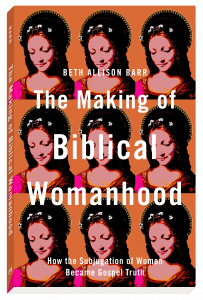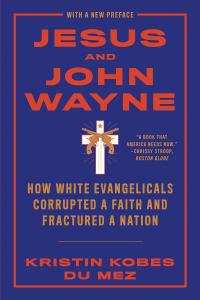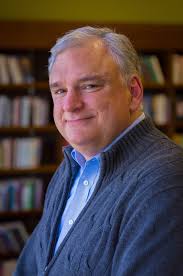A month ago on this site, in “The Crisis of the Evangelical Heart” Joey Cochran said he was “flummoxed” by John Fea calling Jesus and John Wayne and The Making of Biblical Womanhood “woefully flat” examples of “evangelical history” in a recent Atlantic article because he had also previously heard Fea praise both authors’ books. Regardless of the fact that Fea also praised these books in his article, something else that caught my attention that I want to try to shed some light on. But more on Fea later. Now I want to begin to explore what I think is the most difficult topic to talk about in our society.
When I was a kid, I knew there were certain neighborhoods where all the houses were larger than the houses in my neighborhood, and all the yards there were bigger too. It was obvious to me that those families earned a lot more money than my family. I am a product of Head Start, but of course I was clueless that it was my family’s low income that qualified me for that program. During a summer job I had while in college, a co-worker once said, “I can’t imagine growing up and throwing a ball in my yard and it not landing in my yard.” I immediately thought “Wow! Isn’t he privileged!” I now understand these experiences as representative of my earliest nascent and inchoate consciousness of social class.
As a child I didn’t know any highly educated or wealthy Christians, so I assumed such people were mostly unbelievers. I don’t think my father’s church had even two college graduates. When I went away to college, I looked at all of my professors with a measure of awe for their level of education and never for one minute dreamed that I would earn a PhD. Why should I? I didn’t know anyone in my family, neighborhood, or church with a PhD, whether a believer or not. Sometime after I graduated from college my mother commented to me that I would probably eventually leave my father’s church because “college educated people like to go to church with other college educated people.” Her words were shocking to me because I had (and have) no recollection of talking about “college educated people” in my home.
For all the angst, rancor, and exhaustion surrounding conversations about race in American life, especially in recent years, I am absolutely convinced that race is not the most difficult topic for Americans to discuss. Social class holds that distinction. Social class is far more taboo than race. It is so taboo that virtually everything about my almost 59 years of living affirms to me that the vast majority of Americans have neither a useful awareness of it nor the linguistic tools or intellectual chops to meaningfully engage with the concept. While there is endless research and writing about race and gender, and an entire consultant ecosystem centered on that research and writing, there is nothing remotely analogous for analyzing America’s social class system functions.
We use words to think about our world and express ourselves, so it matters whether or not we have words for something. I often tell my students that we cannot think about ice and snow like the Inuit because we don’t have nearly as many words for ice and snow as they do. Bible translators working with tropical languages that don’t have a word for snow find it challenging to translate the concept contained in phrases like “white as snow” in Isaiah 1:18.
Admittedly, one of the challenges of discussing class is its multiple definitions. But just because we struggle to define a term does not mean it’s not real. (Just think about the word love.) While economists often define class by household income, it is the sociologists’ and historians’ definition that has the most salience for how we live. The latter often think of social class in terms of one’s education, occupation, income, and wealth, although many also include such elements as social status, ethnicity, lifestyle, and race.
However, just because most people don’t have the linguistic tools to discuss social class does not mean that they don’t talk about class-related phenomenon. They usually either ignore class or call it something else. For example, I distinctly remember my feelings of frustration during the rise of hip hop music in the eighties. So much of the rhetoric surrounding hip hop equated the genre with “the black experience.” Even though I was black, I could not relate to the lyrics because they didn’t reflect my experiences, so in many subtle ways I felt my racial identity being questioned at that time. Honestly, the problem was that hip hop was (and is) not about “being black,” it is about a particular kind of black experience rooted in class and certain kinds of living contexts.
Another problem with this taboo is that the lack of our ability to honestly consider class does not mean that our lives are immune from the realities of class. The class-based elements of our childhood greatly shape what we grow up expecting from life. Of course the son or daughter of a parent with a PhD may consider earning a PhD at some point in their life. During their most impressionable years they are being constantly reminded about the concept of a doctorate by the most important humans in their life! Of course a girl who grows up in a neighborhood where literally all the men she sees are unemployed, abusive, absentee, or doing time, expects that kind of man to father her children and/or expects she will eventually marry such a man. During her most impressionable years she has never seen another kind of man. Although we often want to attribute such things to race, they are really about class.
More recently the reality of class was brought home to me in an email exchange I had with a friend who is a well-known Southern Baptist scholar. We were discussing the recent situation in Alabama where the state supreme court declared that life begins at conception, which jeopardized Alabama fertility clinics’ use of IVF. In response, the state legislature gave criminal immunity to businesses involved in IVF. I am neither a parent nor a scientist, but I have wondered for years why, if us pro-lifers believe life begins at conception why we are not working to ban IVF. My friend’s statement was, “Many pro-life scholars and clergy are against IVF, but I sense most pro-life laypeople are not. This is an area where there is a major disconnect between thought leaders and the grassroots.” My friend is quite okay with asserting that pro-life activists are intellectually and functionally inconsistent unlike the presumably more educated “thought leaders” of the movement. I thought that for believers being logically consistent in our thoughts and actions was the goal.
This taboo about discussing class inclines us to mis-attribute and oversimplify analyses meant to explain the complexities of life in our society. One of my problems with so many of the people writing and speaking about race and racism in America is that they seem to make everything about race, and only race. It’s simply not true. Many years ago I was struck when my black friend (who held two college degrees) from the southside of Chicago was driving me through the southside and then in one particular neighborhood he suddenly “remembered” to lock our car doors. If a white person had done this, any number of race consultants would have called that person, or their behavior, racist. What do we call it when a black person acts that way around their “own people”?
This brings me back to John Fea’s Atlantic article as another example of how class is often an unidentified or subtle influence. Fea’s main point in his article was that although American evangelicalism has many problems, (which books like Jesus and John Wayne are rightly identifying and attacking) it is more than a cultural subgroup to be studied. The core of evangelicalism is the two-thousand-year-old Gospel message that actually transforms individual people’s lives. This is how I read Fea’s argument.
John Fea
But if we read closely, it seems that the central inspiration for Fea is his father’s conversion which was obvious to him as a child. The kind of conversion Fea witnessed in his father was particularly conspicuous because his father was “a product of the American working class who, as he liked to put it, attended the ‘school of hard knocks.’” That matters. It affects how Fea perceives evangelicalism. Fea saw the Gospel literally change his father’s disposition and make him a better person, leaving aside his anger and swearing. I know wealthy and educated people also struggle with anger issues and swear, however Fea is subtly referencing something akin to a cultural norm associated with a certain class of Americans that we traditionally call “blue collar” workers. His father was a marine and a carpenter. It would be unnatural and hence undesirable for Fea to omit the context of his own formative experiences with his faith when reflecting on the real meaning of evangelicalism. This is true for all of us.
Sure I have a PhD from a “southern ivy” and have published a book. But both of my parents dropped out of college after one semester. In adulthood I now have friends and colleagues whose parents were professors and authors. I often wonder what it would be like to grow up with parents like that. I’ll never know. I wonder what it would be like to grow up thinking I should be able to get into an Ivy League school because who who my ancestor were. I’ll never know. I wonder what it would be like to be a member of a church that is full of college graduates, professionals, elected leaders, and C-suite types. I’ll never know. (Unless I decide to start joining different kinds of churches.)
You may not want to talk about it, but class is real, and it’s everywhere, affecting more aspects of our shared experience than most of us want to talk about. Everything is not about race and gender. Historians used to call “race, class, and gender” the “holy trinity,” but this layered understanding of our lived experience is not recognized as it should be in our nation’s popular discourse as reflected in the media, politics, or the pulpit, creating unnecessary oversimplifications, misunderstandings, and friction. But at least we are not breaking social taboos.
















